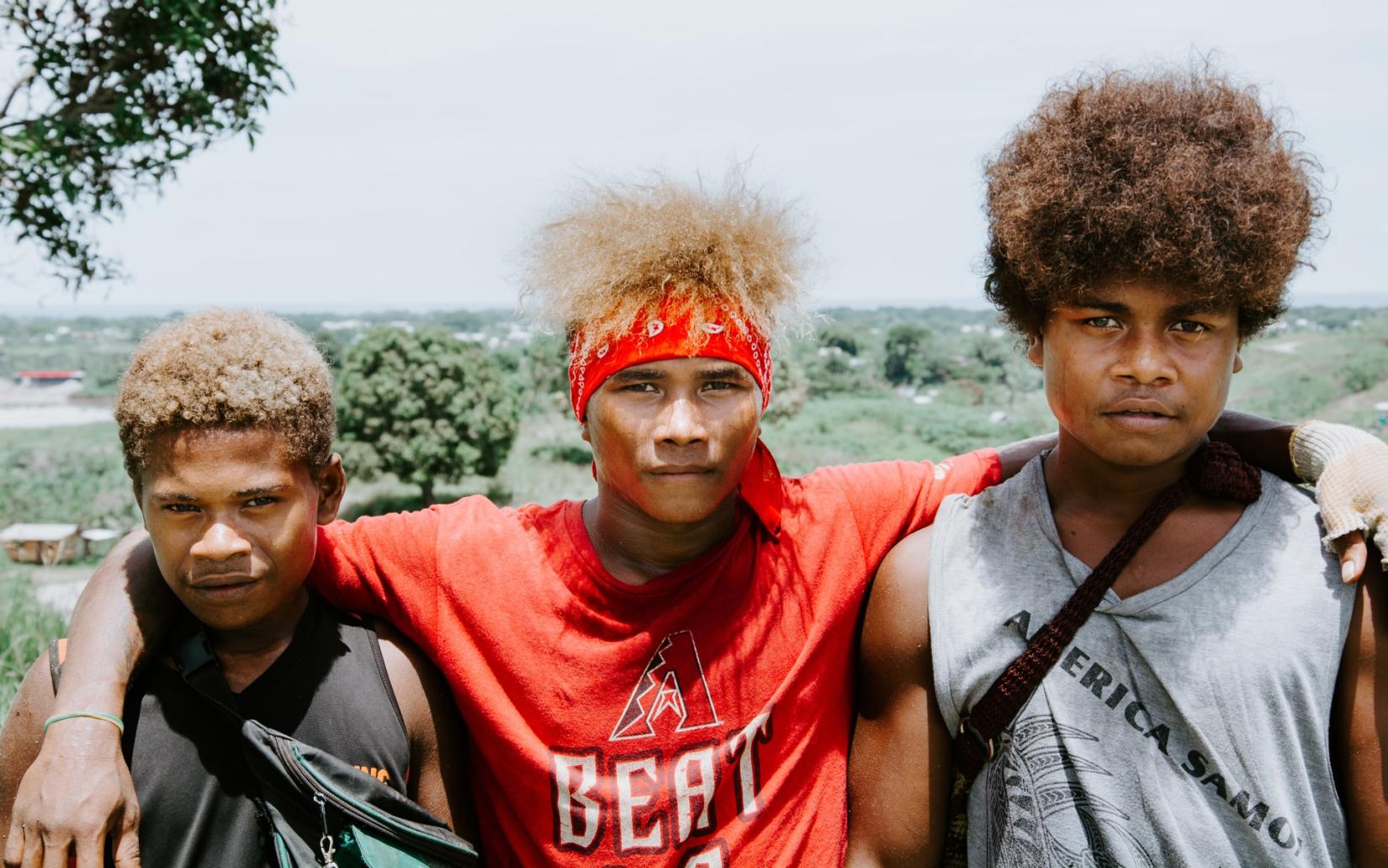Solomon Islands
Solomon Islands is a Melanesian archipelago in the southwest Pacific Ocean with a population of 721,455.[1] The population is dispersed, multi-lingual, and young with 53% of the population aged 24 years or younger.[2] Most of the population lives along the coastal regions and 25% live in urban areas.

Solomon Islands is a lower-middle income country,[1] with a human development index value of 0.562, positioning it at 156 out of 193 countries and territories.[2] Economic progress has produced a gradual reduction of poverty from 33% in 2010 to 23.5% in 2019.[3] Future economic growth relies on the private sector and developments in mining, agriculture, and fishing.
The country faces a ‘triple-burden’ of malnutrition whereby undernutrition, micronutrient deficiencies, and overweight and obesity co-exist simultaneously. At 32%,[4] Solomon Islands has one of the highest childhood stunting rates in the region. Rates of iron deficiency anaemia are high, affecting 39% of children aged 6-59 months and 41% of women of reproductive age (15-49 years).[5]
The World Risk Index 2020 ranks Solomon Islands as the fifth most ‘at risk’ country in the world with regards to extreme natural events and climate change. The country has an average annual displacement of 4,028 people due to sudden-onset hazards such as earthquakes, tsunamis, cyclones, and storm surges.[6]
Although The Convention on the Elimination of all Forms of Discrimination Against Women has been ratified, women continue to be marginalized. Violence remains widespread with 64% of ever-partnered women reporting the experience of intimate partner violence.[7]
Current data indicates that Solomon Islands will miss the targets of the 2030 Agenda for Sustainable Development. While there has been progress, many Sustainable Development Goals (SDGs) are significantly off track, with decreasing trends in SDG 6, clean water and sanitation, and SDG 14, life below water.[8]
Development goals and objectives
The UN has been present in Solomon Islands since 1978. The United Nations Pacific Sustainable Development Framework 2023-2027 outlines the UN’s development priorities and localized responses in 14 Pacific Island countries and territories, including Solomon Islands, to advance the global 2030 Agenda for Sustainable Development. The UN Pacific Sustainable Development Framework complements the National Development Strategy 2016-2035 “Improving the Social and Economic Livelihoods of all Solomon Islands,” particularly in supporting the five long-term objectives of: inclusive economic growth; poverty reduction; access to quality health and education; resilient and environmentally sustainable development; and effective governance.
[1] 2019 census (released in 2023)
[2] Estimates for 2020 from the US Bureau of the Census based on statistics from population censuses, vital statistics registration systems, or sample surveys pertaining to the recent past and on assumptions about future trends.
[1] World Bank (WB) classification for 2020 to 2021 corresponds to GNI per capita between US$ 1,036 - 4,045
[2] United Nations Development Programme (UNDP). 2024. Human Development Report 2023/2024.
[3] Government data as per SDSN 2019, cited in VNR.
[4] DHS 2015, Op. Cit.
[5] DHS, Op. Cit.
[6] Internal Displacement Monitoring Centre (IDMC). 2021. Risk Profile. Sudden-Onset Hazards and the Risk of Future Displacement in the Solomon Islands.
[7] SPC 2009, Op. Cit.
[8] Sachs, J.D., Lafortune, G., Fuller, G. (2024). The SDGs and the UN Summit of the Future. Sustainable Development Report 2024. Paris: SDSN, Dublin: Dublin University Press. 10.25546/108572

